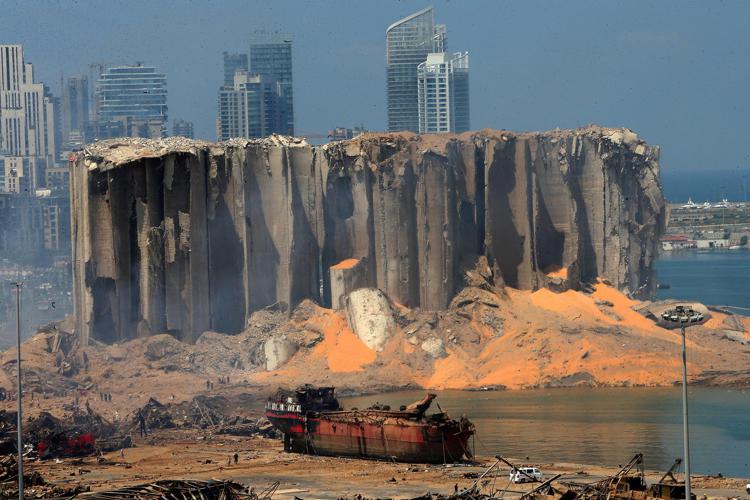

The United Nations World Food Programme is sending an initial shipment of 17,500 metric tons of wheat flour and a three-month supply of wheat into Lebanon to boost its food reserves after a huge blast at Beirut's port last week stoked fears of food scarcity in the bankrupt country, where a sixth of the population lives in poverty.
“It is hard to comprehend the sheer scale of the destruction caused by the explosion until you have seen it for yourself. I am heartbroken,” said David Beasley, WFP Executive Director said in a statement.
“Today, because of the port explosion, thousands of people have been left homeless and hungry. WFP is racing to provide help for the most vulnerable and to prevent food shortages across the country.”
WFP will also set up warehouses and mobile grain storage units as part of a rapid logistics operation in Lebanon, where Beasley said bread could run out in just over two weeks.
Beasley’s visit comes as Lebanon faces a triple shock from the explosion, an economic meltdown and the impact of the COVID-19 pandemic.
He spent three days in Lebanon visiting Beirut and Tripoli's ports, observing food distributions and the provision of meals in communal kitchens run by WFP’s partner, Caritas. Beasley also visited WFP staff in hospital who were injured in the massive 4 August explosion and held talks with Lebanese president Michel Aoun and top government officials.
Lebanon imports nearly 85 percent of its food needs and – prior to the blast – the bulk of trade coming into the country passed through Beirut's port. The 4th August explosion destroyed only large grain silo and the stocks it held.
As a result of the extensive damage to Beirut's port, WFP will be bringing in equipment to allow wheat and other bulk grains to be imported to Lebanon via the port, according to the WFP statement.
During his visit, Beasley welcomed a third WFP plane carrying generators and mobile storage units as an immediate solution and said WFP was confident it could set up an emergency operation "very soon".
"There's no time to waste as we are looking at a catastrophe in the making if we do not get food in and get this part of the port operational again,” he said.
According to the World Bank, one million people are currently living below the poverty line in Lebanon out of an estimated population of six million.
Last week's explosion at Beirut's port turned the world’s attention towards the country "that had been suffering without being heard" for over a year, Beasley said. “It’s time to listen,” he underlined.
WFP has procured 150,000 food parcels to distribute to families impacted by the economic crisis and COVID-19 lockdown measures, WFP said. Since the blast, WFP distributed parcels to two local communal kitchens run by NGOs that are providing meals to victims of the blast and volunteers working to clean up the debris.
Beirut residents who have been directly affected by the blast will benefit from WFP's ten-fold scaling-up of its existing cash assistance programme in Lebanon that serves more than 100,000 Lebanese across the country, said the statement.
The most vulnerable people will be identified in partnership with local and international NGOs who are engaged in relief efforts, with the assistance of community leaders and WFP partners, the statement said.
WFP needs a total of US$235 million to provide food support to the most vulnerable as well as logistics and supply chain support to the country, the statement concluded.